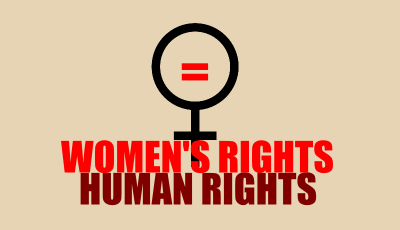When a woman was gang raped on a bus in Delhi in late 2012, the horror of such violence brought South Asian women to the forefront of the global discourse. It also sparked a much larger discussion on women’s rights that transcended the Indian subcontinent. Violence, inequities and unfair practices continue to affect women of all races and backgrounds across the world.
For the one in four women in the U.S. who will experience domestic violence, the one in six who will experience sexual violence, and hundreds of South Asian women and children who seek help from Chicago area domestic violence organizations like Apna Ghar and Hamdard Center, the call to action is both loud and clear. A woman’s right to a safe environment free of violence is a basic human right. United in this cause, SAAPRI joined forces with other South Asian organizations to denounce violence against women here and around the world.
As an organization that seeks to improve the lives of the South Asian American community by using research to formulate equitable and socially responsible public policy, SAAPRI also sheds light on other women’s issues through its research.
In its 2013 demographic profile on South Asian Americans in Illinois, for example, education and income levels reveal a notable gender gap between South Asian American men and women. South Asian American females in Illinois are about twice as likely as males to have less than a high school education. South Asian American men make around $52,137, while women make $42,240. While these inequities stem from a range of cultural, social, and economic factors, these statistics act as the necessary starting point to drive further analysis and influence social change on community and policy levels.
In addition to unfair pay and educational access, women face additional struggles in the growing domestic workforce. Hundreds of thousands of domestic workers – most of whom are women – are excluded from many of the basic protections of labor laws, which include minimum wage, overtime, sick, and vacation pay. Many work without health care and do not earn enough to support their own families. To address this problem, SAAPRI signed on to the Domestic Worker Bill of Rights, which is currently pending before the Illinois legislature. Additional research and policy work is needed to find sustainable solutions, not only for workers but also the families that they serve, which include increasing numbers of seniors and people with disabilities.
In extreme cases, domestic workers brought from other countries to work in the United States are indebted to the people that brought them here and expected to work no matter the conditions, leaving them inextricably stuck in sometimes dire situations with little access to outside help. This form of labor trafficking has been linked to several Asian communities. In fact, according to a 2010 U.S. Department of Justice Report on Trafficking, the majority of immigrant human trafficking victims in the United States are from Asia and the Pacific. SAAPRI is working with the International Organization for Adolescents in an attempt to fill the current gap in research, services, and outreach for Asian American victims of human trafficking. Read more about the Asian American Trafficking Outreach Project (AATOP) here.
South Asian American women, like all women, deserve the right to equal access, fair compensation, and a safe environment.
What can we do?
We can value our women, supporting them in their occupational endeavors to become specialists in their field and vital members of the community. We can push for equal and fair pay for all people, regardless of race, gender, and background. We can conduct further research to inform and pass stronger laws that will protect South Asian women from violence, unfair policies, and structural barriers. We can say no to violence against women in our communities and lift the cultural stigma attached to making their voices heard.
Women’s rights are human rights. Workers’ rights are human rights. These movements intersect and overlap in more ways than one. The victim of the Delhi gang rape is a perpetual reminder that such human rights must not be ignored and that we, as members of the South Asian American community, must always strive to do better for our men and women – and for the generations to come.
Summar Ghias
SAAPRI, Communications Intern

